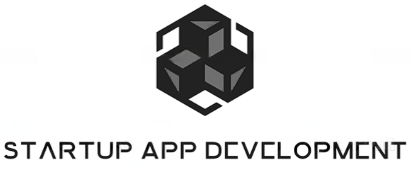Are you seeking to build the next best app but don’t know where to start? Hiring the right app developers can be a daunting task, especially in a tech hub like DC. In this guide, we break down the essential steps to find and hire the perfect team for your project in Washington, DC.
1. Defining Your Project Requirements
Before you start your search, clearly define what you need. This includes the type of app, its functionality, and the platform it will be on. Knowing what you want will help you communicate effectively with potential developers. Spend time considering user needs and the app’s goal; it will make the journey smoother. Document these aspects in a detailed document that can act as a reference point throughout the project. This clarity will not only guide your search but also help you allocate your budget effectively, balancing feature-richness with cost-efficiency.
2. Researching the Local DC Market
DC is home to numerous talented developers and firms. Dive into researching the market to familiarize yourself with local companies or individual freelancers. Look at portfolios, read reviews, and compile a list of potential candidates. Sites like Clutch and GoodFirms are excellent resources for gaining insights into local app developers’ reputations and specialties. Additionally, consider attending local tech events or meetups to network and gather recommendations—personal connections often lead to discovering hidden gems in DC’s tech scene.
3. Evaluating Technical Expertise
Determine what programming languages, tools, and technologies your app will require. Seek out developers who specialize in these areas and have a proven track record of delivering similar projects. Consider whether your project needs specific skills, like expertise in cross-platform development using tools like React Native, or knowledge of specific frameworks like Flutter. For a comprehensive approach to hiring, reviewing hiring guides can provide valuable insights into ensuring a candidate’s technical proficiencies match your project’s demands.
4. Assessing Previous Work and Portfolios
Examine the portfolios of your top candidates. Look for user-friendly interfaces, successful deployments, and innovations that align with your project goals. Previous work often indicates the quality you can expect. Focus on how their past projects have balanced functionality with aesthetics, and seek diversity that might reflect their ability to adapt to varying client needs. A strong portfolio showcases their ability not just to develop, but also maintain apps, a crucial determinant for long-term success and collaboration.
Pay attention to case studies or testimonials that can provide deeper insights into a developer’s working process and problem-solving capabilities. Analyzing detailed project outcomes and client feedback helps ascertain whether they have the creativity and technical experience necessary for your vision. Besides, case studies often reveal how they handle challenges, adapt to changes, and achieve milestones—key factors that can significantly affect your project timeline and success.
5. Checking References and Testimonials
Reach out to past clients of the developers you are considering. Honest feedback from these references can provide valuable insight into the developers’ professionalism, reliability, and communication skills. Ask specific questions about timelines, how well they handled changes, and the post-launch support offered. Inquiring about any potential red flags can save you time and money, while positive insights can reinforce your confidence in the candidates under consideration. Building a trusted network through these references offers long-term benefits beyond your immediate project.
6. Discussing Their Development Process
Inquire about their development process to ensure it aligns with your expectations. Understand the timeline, milestones, and the frequency of updates you can expect throughout the project. Having clarity on whether they use Agile methods can indicate their adaptability to changes and responsiveness to feedback—a crucial aspect in fast-paced environments like DC’s app scene. Make sure their approach to QA aligns with your standards, ensuring a smooth, efficient development cycle that minimizes bugs and maximizes functionality.
Delve into how they manage communication and collaboration, especially in remote settings if relevant. Transparency in their workflow, scheduling of regular check-ins, and how they handle feedback can show their commitment to a collaborative process. Developers who prioritize open communication foster a working environment that encourages innovation and proactive problem-solving, ensuring the app meets expectations throughout its creation.
7. Understanding the Cost Structure
Discuss the budget and payment terms upfront. Ensure that there are clear terms for any extra work and understand what is included in the proposed cost to avoid unexpected charges down the line. Transparency about their pricing model can prevent misunderstandings and ensure that resources are allocated efficiently. Consider future costs such as app maintenance, updates, and scaling, working these factors into your budget to secure financial stability for your project in the long run.
8. Meeting the Team in Person
Whenever possible, meet the developers or team in person. This allows you to gauge their enthusiasm, professionalism, and ensure you’re both on the same page about the project’s goals and requirements. An in-person meeting also provides an opportunity to discuss expectations in deeper detail, addressing potential concerns promptly. Beyond confirming qualifications, such interactions foster trust, encouraging a partnership based equally on compatibility and mutual vision for the project’s success.
If meeting in person is not feasible, consider utilizing video calls. Even virtual face-to-face meetings can create a better rapport than emails or phone calls alone. Pay attention to the team dynamics, as a cohesive team is often indicative of a healthier work environment, which can translate into better outcomes for your project. Engagement levels and the questions they ask during meetings can further signify their commitment and interest—a key factor for a successful and productive partnership.
9. Trusting Your Instincts
Lastly, trust your instincts. If something feels off, it probably is. Choose developers who you feel comfortable with and who understand your vision. Building a good rapport can be as important as their technical skills. If you communicate naturally and share a mutual respect with the team, it usually leads to a more effective collaboration. Remember, while technical prowess is paramount, the ability to work synergistically towards a shared goal often defines the project’s ultimate success.


